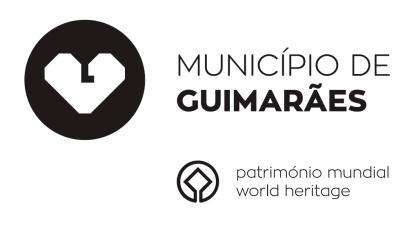Guimarães
Updated on 14.10.2024
In Guimarães, Portugal, under the framework of the Governance Ecosystem Guimarães 2030, a task force has been created to create a more sustainable waste management system by integrating three circular economy domains: innovation, waste and resources, and citizens awareness and mobilisation.
The framework links together the City Hall of Guimarães, Academia, Citizens and Private business develop ways to prevent waste by collecting and creating value from biowaste.

More information
The task force is led by Head of Urban Services and Environmental Division. It includes a multidisciplinary team comprising members from several institutions and civil societies:
- Landscape Laboratory;
- Centre for Waste Valorisation;
- Innovation in Polymer Engineering Centre;
- VITRUS;
- RESINORTE;
- the private sector;
- Municipal Economics and Energy division;
- members from local and National ENGO;
- schools;
- REFOOD association;
- Green Brigades (groups of volunteers that have a year-base action plan to implement field-actions towards environmental sustainability);
- local administration units known by parishes.
Urban rural predominance
Intermediate
Circular Systemic Solution
‘Fuelling sustainability through biowaste prevention, collection and valorisation’
Guimarães is on a mission to make waste management more sustainable through the gradual introduction of a system for separate biowaste collection. This effort is a part of the BioWaste Action Plan, which is integrated into the RRRCICLO strategy, a circular economy roadmap. It targets various sources of biowaste, ranging from households and restaurants to schools, hospitals, parks and local farms.
The pilot does not just collect waste; it transforms waste into valuable resources through initiatives like home or community composting, organic fertiliser production, and even converting waste into energy.
Guimarães is also taking proactive steps to spread awareness about the importance of preventing food waste among public schools, universities and citizens.
Objectives
- Establish a separate collection system of biowaste at the source, targeting 50.7% by the end of 2024. This aims to contribute to the goal of getting 100% of the population of Guimarães to use the system by 2028.
- Explore and identify the most appropriate pathways for biowaste valorisation.
- Increase public awareness about food waste and food loss at home and promote sustainable shopping and cooking practices.
Systemic nature
Guimarães developed a value-chain approach to biowaste by developing distinct pathways for organic waste (OW) and green waste (GW) considering the following aspects: the nature of waste producers, selective waste collection routes and valorisation solutions. A multisectoral approach was set in place by identifying key biowaste sources, including: households, the HoReCA sector (hotels, restaurants and cafes), schools, hospitals, public parks and forest green areas, and the local agricultural sector. The approach also involved key stakeholders in selective collection and valorisation.
The collection and management of GW and OW in Guimarães is done by two companies: the two forms of waste are deposited in separate bins provided by Vitrus Ambiente (a municipal waste collecting company) which are then managed by Resinorte, the management entity responsible for the selective collection, sorting, valorisation, and disposal of urban waste. Composting facilities are being progressively established in the territory and composting is being promoted to the public through environmental education sessions organised by the Landscape Laboratory, a research and development institution which coordinates ‘The Municipal Educational Programme for Sustainable Development’. This composting drive aims to shorten the valorisation value chain and raise community awareness about waste production. To achieve a comprehensive and systemic solution, academia, NGOs and technological organisations are also involved in the process.
Expected impact
The proposed circular systemic solution aims to increase citizens’ quality of life and deliver environmental benefits by improving biowaste management whilst boosting the local economy through valorisation of biowaste into compost, organic fertiliser, and as a heating source.
The Circular Economy in the city/region
Link to existing circular economy strategy and/or action plan
The city has a standalone Circular Economy Action Plan (CEAP): RRRCICLO – Circular Economy at Guimarães.
Leading organisation
City of Guimarães
Unit/department/section
Environmental division
Participation in other relevant initiatives
- NetZeroCities (Pilot and mission city)
- Green City Accord
- Zero Waste City Certification Candidate by Mission Zero Academy
- European Circular Cities Declaration
- HOOP Lighthouse
(Other) Key Resources




